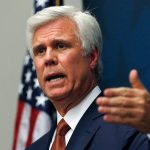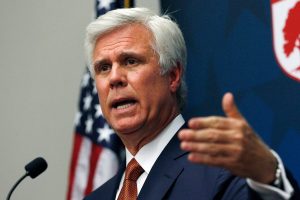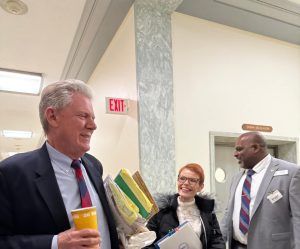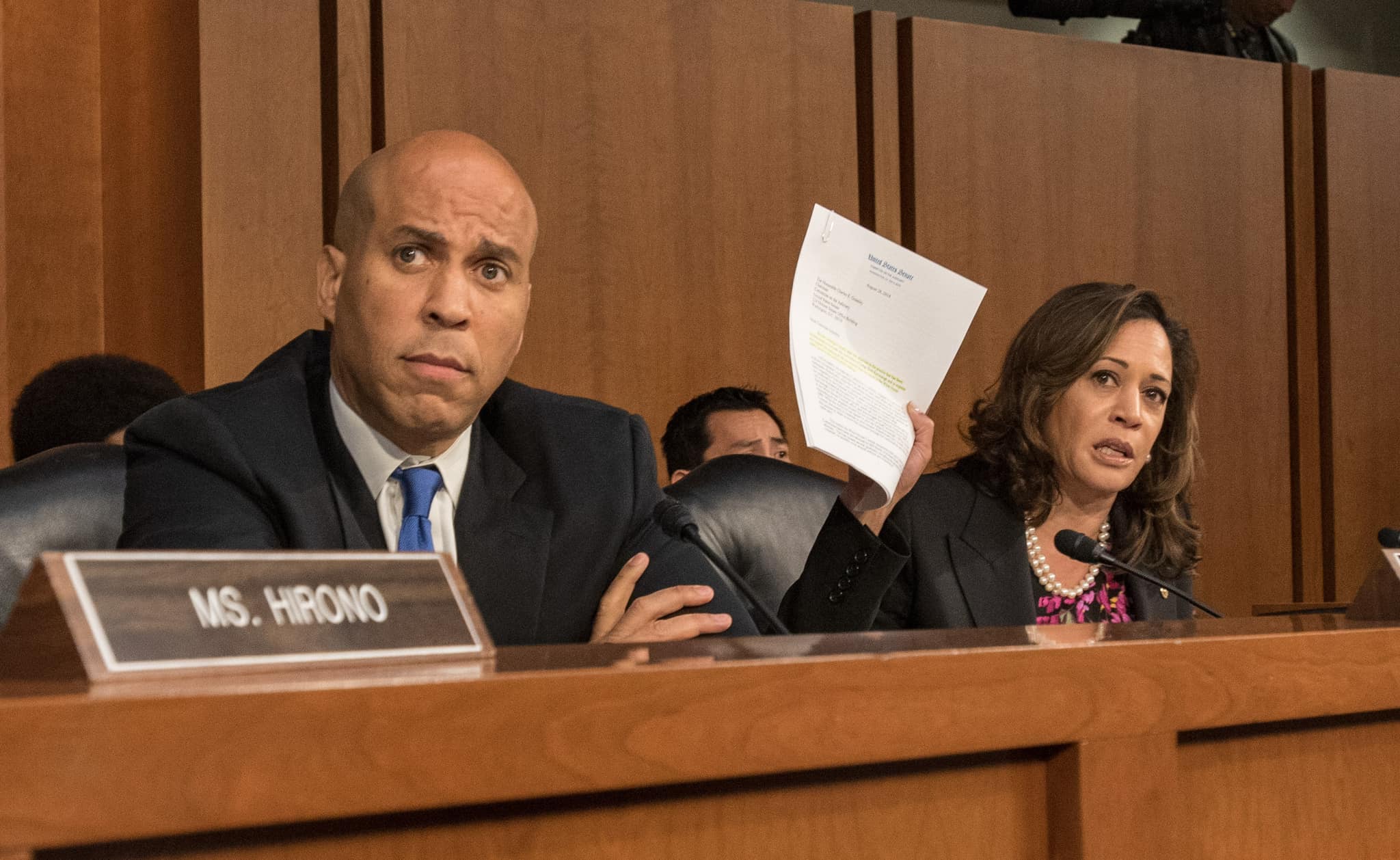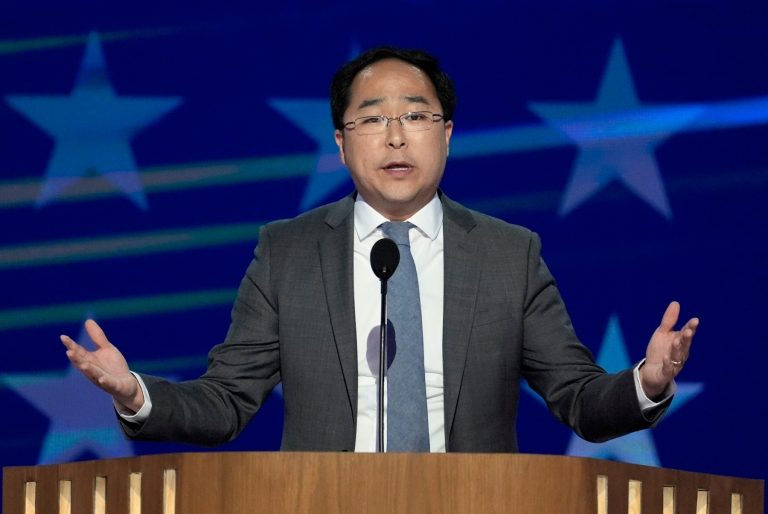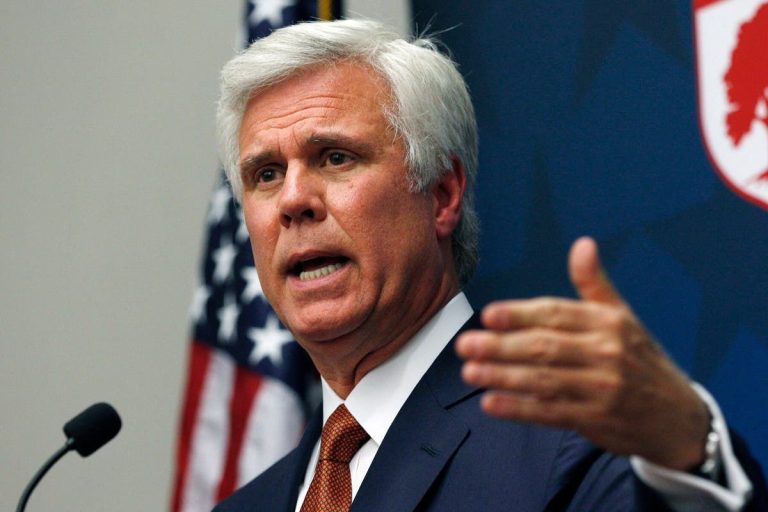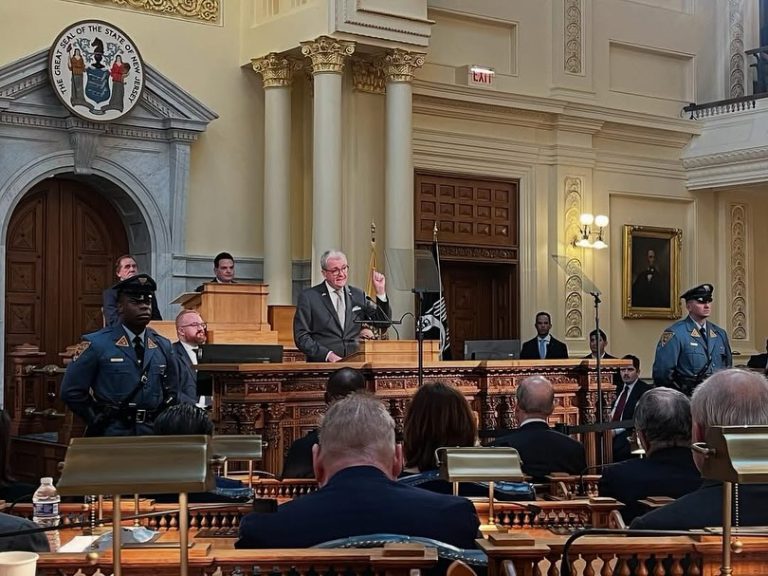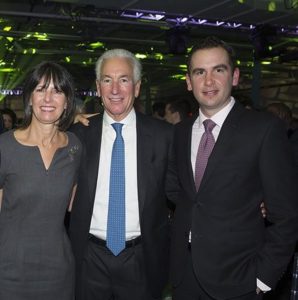Senate Democrats Elevate Klobuchar and Booker to Leadership Roles
Senate Democrats have finalized their leadership shuffle, promoting Sen. Amy Klobuchar (D-Minn.) to the No. 3 spot and Sen. Cory Booker (D-N.J.) to the No. 4 position. The move avoids a potential intra-party clash between the two prominent lawmakers.
Klobuchar will now chair the Senate Democrats’ Policy and Communications Committee, succeeding retiring Sen. Debbie Stabenow (D-Mich.). Booker assumes Klobuchar’s former role as chair of the Democratic Steering and Outreach Committee, cementing his influence in guiding the party’s legislative priorities and outreach efforts.
Both senators, known for their high profiles and 2020 presidential campaigns, had expressed interest in ascending the leadership ranks. Booker’s decision to take the No. 4 spot cleared the way for a smooth transition, underscoring a unified front as Democrats navigate a narrowly divided Senate.
Senate Majority Leader Chuck Schumer (D-N.Y.) and Senate Majority Whip Dick Durbin (D-Ill.) were reelected to their positions unopposed. Additionally, Sen. Kirsten Gillibrand (D-N.Y.) was tapped to chair the Democratic Senatorial Campaign Committee, a pivotal role in preparing for the 2026 midterm elections.
With this leadership slate, Senate Democrats aim to strengthen their legislative strategy and communication efforts heading into the next Congress. Both Klobuchar and Booker are expected to play key roles in advancing the party’s agenda and fostering collaboration within the caucus.ctive governance could define his legacy in the Senate.
As the No. 4 in Senate Democratic leadership and chair of the Democratic Steering and Outreach Committee, Sen. Cory Booker is well-positioned to amplify his influence and shape the legislative and political agenda of his party. Here’s what Booker can do in this new role:
1. Bridge Between Caucus Members and Leadership
Booker will play a key role in aligning the priorities of Senate Democrats, ensuring that diverse perspectives across the caucus are reflected in party strategy. As a ranking member of leadership, he can serve as a conduit between rank-and-file senators and the top decision-makers, fostering unity on key issues.
2. Strengthen Outreach and Coalition-Building
The Steering and Outreach Committee is instrumental in building relationships with external stakeholders, including advocacy groups, labor organizations, and key constituencies. Booker can leverage this position to deepen connections with civil rights organizations, environmental advocates, and veterans’ groups, aligning external support with the party’s legislative priorities.
3. Influence Policy Prioritization
As part of Senate leadership, Booker will be involved in discussions about which bills to prioritize and how to message them effectively. His focus areas, such as criminal justice reform, equity in healthcare, and environmental justice, may gain more prominence as he advocates for their inclusion in the Democratic agenda.
4. Shape Legislative Messaging
Booker’s role allows him to contribute to crafting the party’s message on legislative initiatives, ensuring clear communication of Democratic values to the public. He can use this platform to promote policies that resonate with diverse constituencies, drawing on his experience as a national figure.
5. Bolster Candidate Recruitment and Support
As a senior leader, Booker will also have a hand in supporting Democratic candidates during election cycles. He can use his national profile to assist in fundraising and campaigning for Senate candidates, particularly in competitive states.
6. Advancing Bipartisan Collaboration
Booker has a track record of working across the aisle on issues like criminal justice reform. In this role, he can act as a bridge to Republicans on issues with potential for bipartisan support, helping Democrats make progress even in a divided Senate.
7. Preparing for Future Leadership Opportunities
While currently No. 4, Booker’s position gives him visibility and experience in leadership that could pave the way for future ascension, including a higher-ranking position or committee chairmanship if Democrats regain the majority.
In sum, Sen. Cory Booker’s new role as the No. 4 Senate Democrat and chair of the Democratic Steering and Outreach Committee gives him a powerful platform to influence legislation, outreach, and party strategy, furthering both his priorities and those of the Democratic caucus.
